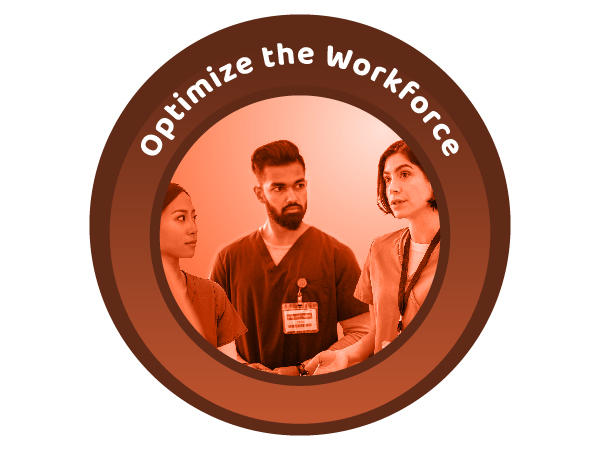Our efforts to end cancer as we know it will fail if we ignore our most important resource—the cancer care and research workforce. Developing and maintaining a robust and stable biomedical workforce requires collaboration and investment across many organizations, including research universities, professional societies, philanthropic foundations, private industry, and the federal government to train and support the scientists of tomorrow.
State of the cancer workforce today
Building a workforce that reflects the people it serves requires us to address longstanding factors, including:
- Challenges around completing initial training, finding mentors, obtaining research funding, and securing academic appointments during early career stages.
- Balancing the need to participate in scientific teams and the need for individual recognition to advance one's career.
- The uncertainty of a successful future in cancer research due to lack of funding opportunities.
Strategies to optimize the cancer workforce
- Engage talented trainees and early-career scientists and support their pursuit of careers in cancer research.
- Study and address the unique needs and concerns of cancer researchers at all career stages in all disciplines.
- Generate new strategies to support career paths in life sciences and non-research science fields, such as in education, health policy, and health journalism.
Examples of activities across the government to achieve this goal
A robust workforce is essential for the delivery of high-quality cancer care. Federal agencies play an important role in supporting and training the cancer research and cancer care workforce.
- In August 2023, the Health Resources and Services Administration announced awards of more than $100 million to train more nurses and grow the nursing workforce.
- The National Science Foundation ExLENT Program supports experiential learning opportunities for individuals from diverse professional and educational backgrounds to increase access to, and interest in, career pathways in emerging technology fields including biotechnology.
- The Health Resources and Services Administration Bureau of Health Workforce offers scholarships and loan repayment to students and clinicians and awards grants to organizations such as schools, hospitals, and health centers to improve health workforce training.
- The National Science Foundation Advanced Technological Education program supports partnerships between two-year institutions of higher education, other academic institutions, industry, and other entities to improve education of technicians in science and engineering.
